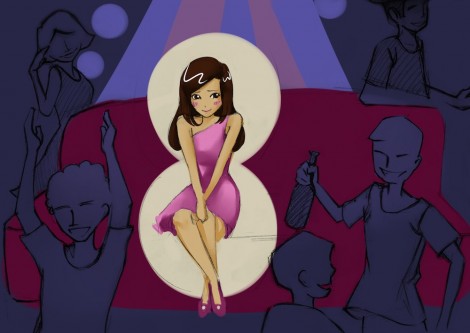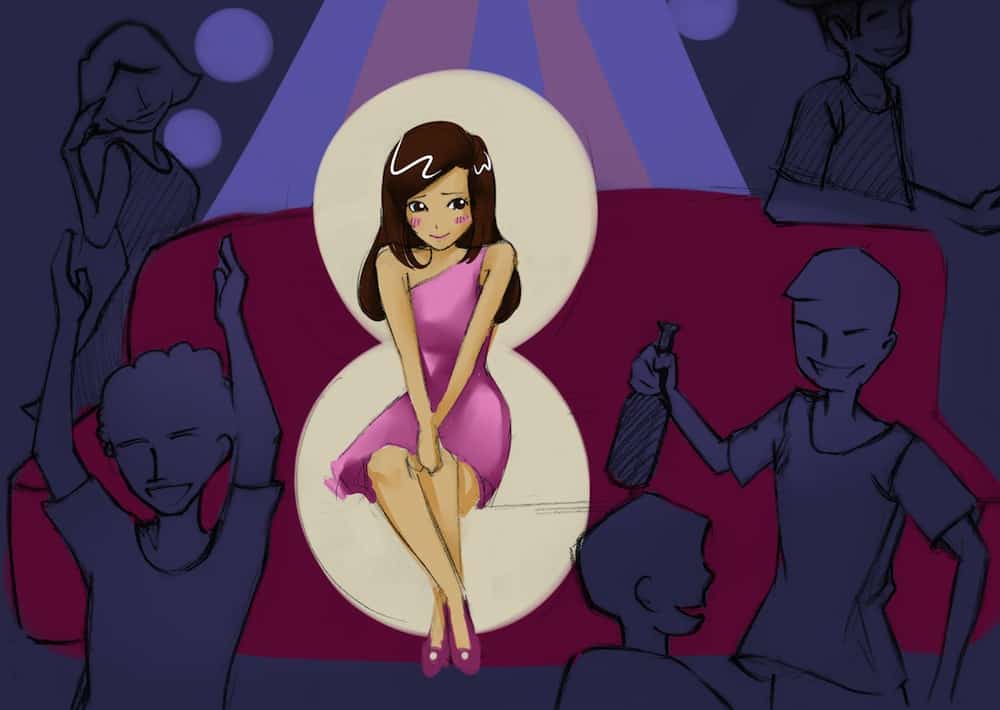If you’re a prudent young woman looking to avoid sexual assault, Margaret Wente has some “common sense advice” for you: “Don’t get drunk.” After all, some studies report that over 80 per cent of campus sexual assaults involve alcohol abuse. For Wente, the most effective way to combat rape culture is to ask women to stop binge drinking.

NANCY JI/THE VARSITY
On the surface, this advice seems rational. If drunk women are more likely to be sexually assaulted, then the best way to challenge rape culture is to ditch the booze. Wente’s solution seems to be a simple panacea for a very complex issue. And yet, somehow, it all seems too good to be true.
Even assuming we could get women to stop drinking — which, I think I can safely say, we can’t — we would need to answer an obvious question: why are we asking women to abstain from alcohol if it is men who break the law and commit rape under its influence? I’m sure some will call me a romantic idealist. They’ll argue that like it or not, rapists are out there — and we’d better empower women to avoid them. To an extent, I agree that it is problematic to deal in the realm of “how it should be” rather than “how it is.” However, there is a fundamental, practical problem with placing the onus of rape prevention exclusively on
women: it sends the wrong message to young men.
If we lazily claim that boys will be boys, we perpetuate the idea that men’s sexual aggression is explicable and inevitable. Furthermore, we implicitly suggest that the drunk woman has failed in her responsibility to protect herself, has made herself an easy target through her own lack of prudence — that rape is for a woman to avoid, rather than for a man to avoid committing.
Implicitly, Wente argues that the rape victim’s indiscretion makes her somehow complicit in the crime. It is a narrative that is all too familiar and all too toxic. Sexual assault already fosters a sense of guilt and self-blame in the victim. Perhaps, this explains why so few incidents are actually reported. Culturally, therefore, we need to foster and reinforce the truth that rapists are the sole cause of rape, and that no one’s behavior, regardless of gender, ever invites or legitimizes sexual assault.
If we don’t change our cultural narrative around sexual assault, how can we challenge rape culture? Women aren’t about to stop drinking, and they should feel free to dress promiscuously. As U of T law professor Brenda Cossman argues in her October 8 piece for The Globe and Mail, even significant changes in the legal system have not significantly altered the sexual assault rate in this country.
While we can’t reasonably stop women from drinking, we can teach young men to understand that stop means stop, no matter how a woman is dressed and no matter how drunk she is.
We need to embrace and maintain the narrative that sexual assault victims are just that — victims. And Wente’s argument is fundamentally counterproductive to that goal. Of course, this narrative won’t end sexual assault; rapists will always stalk the streets. But it is a narrative that we can foster among our sons — a narrative that, had it been properly in place, might have given pause to the boys who assaulted Rehtaeh Parsons. To my mind, that is something worth fighting for.
Devyn Noonan is a third-year English student.


